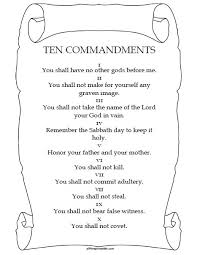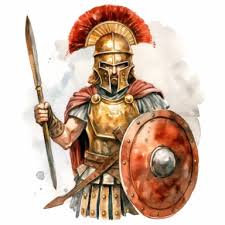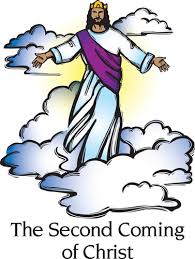I Thessalonians 5:23 – Now may the God of peace himself sanctify you completely, and may your whole spirit and soul and body be kept blameless at the coming of our Lord Jesus Christ.
Paul ends his letter with a prayer for the church of Thessalonica. 
It has often been said that doctrine is useless, unless God writes it on the tablets of our hearts with his own finger. In other words, it isn’t enough for these believers to just hear the words of Paul in this letter. Holy Spirit needs to touch them with the message, so it takes root within their hearts and produces a change in their lives. This is the general meaning of Paul’s closing prayer.
In this prayer, Paul refers to the Father as the God of Peace. This is a fitting title, as God is the source of all peace and he sent his Son Jesus, the Prince of Peace, to bring salvation into the world:
Isaiah 9:6 - For to us a child is born, to us a son is given; and the government shall be upon his shoulder, and his name shall be called Wonderful, Counselor, Mighty God, Everlasting Father, Prince of Peace.
(See also Hebrews 13:20, Romans 16:20, Philippians 4:9, etc). Through that salvation we have peace with God as well as the peace of God – regardless of the circumstances we are facing.
Paul prays that the same God who is the author of peace and salvation (the God who does what is impossible for us to do) will sanctify believers. To sanctify is to make free from sin; to cleanse from moral corruption; to purify. It also means to make something sacred or holy, to set it apart for a holy use.
Sanctification is both an instantaneous event and a long-term process:
- It is instantaneous in the sense that we are cleansed of our sin the moment we accept Jesus as Lord.
- It is a long-term process in the sense that we must continually strive for greater and greater levels of holiness. The more holy we become, the more use we will be in the kingdom of heaven (II Timothy 2:20-22).
Sanctification is the process by which we become more holy. It is a special function of Holy Spirit within our lives.
There is no question that the believers in Thessalonica had already been sanctified to some degree. They were instantly sanctified when they turned from idols to serve the true and living God.
Meanwhile, they were working on their long-term sanctification. We know this because they had evidence of faith, hope and love in their lives, as well as other fruits of the Spirit. But the process of sanctification was not yet complete.
Notice that Paul doesn’t want us to be partially sanctified or even mostly sanctified. His prayer is that we are completely/totally sanctified. In other words, he wants our whole person – body, soul and spirit – to be 100% sanctified and set apart for use by God.
Body – The body is our physical being which God formed from the dust of the earth (Genesis 2:7). It is often referred to as the ‘flesh’.
Soul – When we talk about the soul of a person, we are talking about what are referred to as ‘inferior faculties’. This includes things like our senses, desires/passions, emotions and appetites.
Spirit – Similarly, the spirit is referred to as the place of our ‘superior faculties’. This includes the mind (intelligence, thinking/reasoning), the will and the conscience.
The process of sanctification must begin with our spirit. Using the scriptures (or messages/teachings on the scripture) Holy Spirit will appeal to our thinking/reasoning and conscience. He will show us where our lives fall short of God’s commands. He will then motivate and empower us to make changes. 
In response, our spirit engages our will, which sets in motion a desire to comply with God’s commands. Our spirit takes authority over our soul (emotions, desires, appetites) and forces it to align with our will.
When the spirit and the soul are in agreement, the body will follow. Thus, with the aid of Holy Spirit, we can choose to abandon the way of sin and follow paths of righteousness. The more we do this, the easier and more natural it becomes.
An example will probably make this clearer:
Let’s suppose there is a woman who is caught up in lust. She hears a sermon on the evils of lust. Later, when she is about to engage in lust, Holy Spirit brings that message to her remembrance. At that moment, she has an opportunity for sanctification.
As Holy Spirit speaks to her spirit, she uses her intelligence/reasoning powers and conscience to decide that she will not engage in this act of lust. She sets her will in motion; her spirit takes authority over her soul (desires, emotions, passions) and she resists the urge to engage in lust.
Because her spirit and soul are in agreement, her flesh will follow. She will not surrender her body to an act of lust. The more times she successfully does this, the easier it becomes until she established a new pattern in her life. She has made progress in sanctification.
One of the keys to sanctification is that it MUST begin with your spirit. If you allow your soul to be in charge of your life, your emotions and desires will force your mind to justify any and every sin you want to commit. Eventually your conscience will be seared and there won’t be any limit to the sins you will pursue.
This is one of the reasons it is so important for us to renew our minds with the word of God.
Romans 12:2 – Do not be conformed to this world, but be transformed by the renewal of your mind, that by testing you may discern what is the will of God, what is good and acceptable and perfect.
Thus, we conclude that long term sanctification isn’t something that God ‘magically’ does in our lives. If he did, it would be a violation of our free will. Instead, it is a partnership between us and Holy Spirit; it is a process over time. We all begin as spiritual babies in Christ but then grow in grace until we become fully mature.
We also conclude that Holy Spirit will guide and strengthen you through the process, but you have to do the work; you must place your spirit in control of your soul, so you can control your own vessel.
The good news is that eventually, as your spirit continues to submit to the will of God, your soul will set its affections on things above and the body will fall into line and become an instrument of righteousness (Colossians 3:1-10). It will become second nature to do what pleases God as opposed to giving into the desires of your flesh. This is sanctification.
2 Corinthians 7:1 - Having therefore these promises, dearly beloved, let us cleanse ourselves from all filthiness of the flesh and spirit, perfecting holiness in the fear of God.
Paul goes on to pray that each Christian will be preserved or kept blameless in a state of holiness and grace until we die, or Christ returns.
I Thessalonians 5:24 – He who calls you is faithful; he will surely do it.
Paul now reassures the saints that God would certainly answer his prayer to sanctify them and keep them blameless until they died or Christ returned. This reassurance is based on the fact that God is faithful to his word. His faithfulness is a pledge that he will perform all that he has promised.
Philippians 1:6 - Being confident of this very thing, that he who has begun a good work in you will perform it until the day of Jesus Christ:
Each one of us can be fully confident that God is going to do his part in the progressive work of our sanctification. However, we must again stress that he does this in conjunction with our own efforts. As one scholar put it, we can do nothing without God; God will do nothing without us.
I Thessalonians 5:25 – Brothers, pray for us.
Paul and his team were mighty men of God and seasoned soldiers in his army. But they were also human. They were fully engaged in some very difficult work. 
They faced constant travel, threats of public beatings, imprisonment, death and hardship in every city they entered. They faced active opposition to the gospel from all segments of society – the Romans, the Jews and the Gentiles.
Given these circumstances, it isn’t surprising that Paul requested prayer for himself and his team. But his prayer requests may seem a bit strange to many of us. Paul didn’t ask for things in his life to become easier. He didn’t ask to be spared from physical violence. He didn’t pray to receive the riches or honor of this world.
Instead, he desired to have God open even more doors for the spread of the gospel. He wanted God’s divine blessing on the seeds of the gospel, so they would sprout and produce a hundred-fold harvest of salvation throughout the world.
I Thessalonians 5:26 – Greet all the brothers with a holy kiss.
What is a holy kiss?
A holy kiss refers to a pure and chaste kiss of brotherly love within the church (I Peter 5:14, Luke 7:45, Acts 20:37, etc). It stands in opposition to the treacherous kiss of Judas.
This appears to have been a common mode of salutation in many eastern cultures and especially among the Jews (Genesis 27:26, Proverbs 24:26).
Practically speaking, within the church setting, men greeted other men (and women greeted other women) with this kind of kiss. In the early church it became an outward symbol/token of love and friendship. In our modern-day church cultures, this kind of love and friendship manifests itself in shaking hands or hugging.
I Thessalonians 5:27 – I put you under oath before the Lord to have this letter read to all the brothers.
Remember, what we consider to be the ‘book’ of I Thessalonians was actually a letter. As such, it had to be sent to a single individual. But Paul is very clear that the contents of this letter are to be read to the entire church congregation during one of their assemblies because it contained divine instruction and doctrine. It was meant for all the saints, not a select few who were in positions of authority.
Paul is so adamant about this, he puts the receiver of the letter under an oath. This indicates one of two things:
One, that he must have had some reason to think that his letter would be suppressed or withheld from the entire congregation at Thessalonica.
Or two, that the leaders in Thessalonica might keep the letter for themselves and not share it with the other, smaller churches in the region of Macedonia. 
There is no doubt that Paul (and the other writers of the New Testament) wanted their letters to be copied and sent to all the churches in the vicinity of the church to which they were addressed.
Just as every Jewish synagogue had a copy of the Law and Prophets, so every Christian church was to have a copy of the gospels and epistles which were sent by the apostles. They were to be read every Sabbath for the instruction of the saints. This is how the word of God was disseminated throughout the early church.
If the church leaders failed to pass on the letter, a great number of smaller congregations would never have heard the true doctrines of the gospel found in the book of I Thessalonians.
I Thessalonians 5:28 – The grace of our Lord Jesus Christ be with you.
And finally Paul prays that God’s grace – his favor and goodwill and blessings – would surround and overflow each member of the church, at all times and in all places. Amen!
Let me offer you some encouragement, relief and strength:
Today’s post speaks of the importance of sanctification.
There is a form of long-term sanctification in which we partner with Holy Spirit to bring ourselves (body, soul and spirit) into alignment with the commands of God. As the name suggests, this is a gradual process that takes place over time.
This process can only begin once we have experienced instant sanctification, which is the forgiveness/cleansing of our sin the moment we repent and acknowledge Jesus as Lord of our life.
So, the question is, have you done that? Have you confessed your sin before God and asked Christ to wash you in his blood? If not, you can do so RIGHT NOW. Just talk to him like you would anyone else; tell him you are sorry and you want him to be Lord of your life. If you are having trouble finding the right words, you can use this prayer:
Dear Jesus, I confess to you that I am a sinner. I am sorry for all the wrong things I have done and I ask you to forgive me. I believe that you are the Son of God, that you died on the cross and rose again, and that your blood paid the price for my sin. I invite you to come into my heart and life and to be my Lord and Savior. I commit myself to you right now. Thank you for saving me from death and giving me the gift of eternal life. Amen.
If you prayed this prayer and sincerely meant it, then you have received the gift of salvation from Jesus Christ!


















 st time you thought about or meditated on the reality of the return of Christ, the resurrection of the dead, or your own state of spiritual watchfulness?
st time you thought about or meditated on the reality of the return of Christ, the resurrection of the dead, or your own state of spiritual watchfulness? 











 Obviously, every Christian truly believes that Jesus died on the cross and rose again on the third day. These are fundamental articles of our faith; nothing is more certain and more firmly believed. Indeed, his atoning sacrifice and resurrection are the bedrocks of Christianity. They are the basis of our peace, consolation, salvation and joy. Without these concepts, there would be no Christianity!
Obviously, every Christian truly believes that Jesus died on the cross and rose again on the third day. These are fundamental articles of our faith; nothing is more certain and more firmly believed. Indeed, his atoning sacrifice and resurrection are the bedrocks of Christianity. They are the basis of our peace, consolation, salvation and joy. Without these concepts, there would be no Christianity!

 encouragement on your coworkers, clients and vendors. This includes casual encounters like interacting with the folks at the grocery store or the hardware store.
encouragement on your coworkers, clients and vendors. This includes casual encounters like interacting with the folks at the grocery store or the hardware store. 


